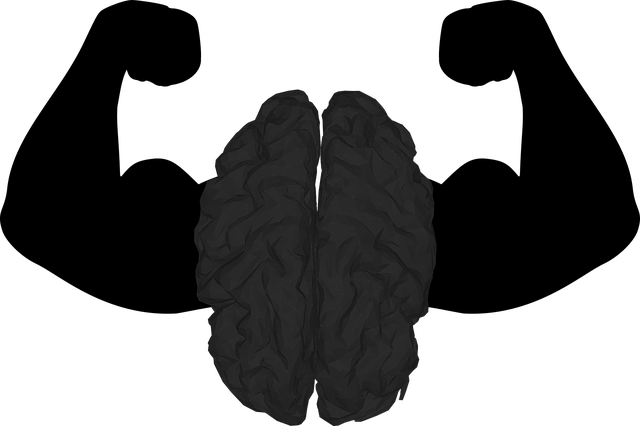This discussion highlights the integration of various wellness practices such as mindfulness techniques, yoga exercises, and meditation to promote mental clarity and reflection. Mindfulness offers a foundation for observing the present moment non-judgmentally, enhancing awareness and focus. Yoga contributes to stress reduction, flexibility, and overall well-being through its combination of physical poses and controlled breathing. Meditation, a key stress management tool, helps in calming the mind and regulating the body's response to stress via deep breathing. The importance of healthy eating habits is emphasized for supporting cognitive function and sustaining energy levels. Regular physical activity, including yoga, releases endorphins that boost mood and serve as a natural outlet for stress. Gratitude journaling is presented as a self-care routine that enhances emotional well-being by shifting focus to life's positive aspects. Engaging in these mental exercises and self-care practices consistently fosters a harmonious balance, leading to improved mental clarity, inner peace, and overall well-being. Embracing these holistic approaches, which include deep breathing exercises, yoga, meditation, healthy eating, and gratitude journaling, can significantly enhance one's mental health journey.
Exploring the depths of one’s mind for clarity and reflection is a journey that intertwines wellness practices with personal introspection. This article delves into the transformative power of integrating mindfulness techniques, yoga exercises, and meditation practices into your daily routine, all aimed at enhancing mental clarity and emotional balance. We will also examine how adopting healthy eating habits and engaging in regular physical activity are pivotal stress management strategies. Furthermore, we will discuss the profound impact of gratitude journaling and the design of self-care routines on one’s overall well-being. Embark on this enlightening path to cultivate a clearer mind and a more peaceful inner landscape through these holistic approaches.
- Cultivating Mental Clarity and Reflection Through Wellness Practices
- – Embracing a holistic approach to mental well-being
- – Integrating mindfulness techniques into daily life
- – The role of yoga exercises in promoting mental clarity
Cultivating Mental Clarity and Reflection Through Wellness Practices

Embarking on a journey towards mental clarity and reflection is a multifaceted process that can be significantly enhanced by integrating wellness practices into daily life. Mindfulness techniques, where one actively observes the present moment without judgment, serve as a cornerstone for cultivating this inner peace. These practices encourage a heightened awareness of thoughts and sensations, fostering a more focused and clear mind. Yoga exercises are another valuable tool in this quest; their combination of physical poses, stretching, and controlled breathing helps to reduce stress, improve flexibility, and promote a sense of well-being. By engaging in these yoga sessions consistently, individuals can enhance their body’s connection with the mind, leading to greater mental clarity.
Meditation practices are also pivotal in managing stress and reflecting on one’s thoughts and emotions. Through guided meditations or silent contemplation, individuals can disengage from the chaos of daily life, allowing for a deeper level of introspection. This practice not only quiets the mind but also enables better stress management. Furthermore, incorporating deep breathing exercises into both meditation and everyday moments can help regulate the body’s stress response. In addition to these mental wellness practices, maintaining healthy eating habits plays a crucial role in supporting cognitive function and overall health. Consuming nutrient-rich foods fuels the brain and body, facilitating clearer thinking and more sustainable energy levels throughout the day.
Complementing these mental exercises with regular physical activity is essential for sustained mental clarity. Exercise stimulates the production of endorphins, which are natural mood lifters, and can help reduce anxiety and depression. It also provides a constructive outlet for stress, contributing to better overall mental health. Additionally, gratitude journaling is a powerful self-care routine that encourages reflection on life’s positive aspects, fostering a more optimistic outlook and enhancing emotional well-being. By consistently practicing these various wellness techniques, individuals can achieve a harmonious balance between mind, body, and spirit, leading to improved mental clarity and reflective thought processes.
– Embracing a holistic approach to mental well-being

Incorporating a holistic approach to mental well-being involves integrating various wellness practices that cater to the mind, body, and spirit. Among these, mindfulness techniques and yoga exercises are foundational elements that promote a sense of presence and calm. These practices encourage individuals to focus on the present moment, allowing for a clearer mind and a more harmonious connection with one’s inner self. Additionally, meditation practices serve as a powerful tool for stress management, offering a sanctuary for reflection and rejuvenation. By setting aside time each day for these meditative sessions, individuals can cultivate a more resilient mind capable of navigating life’s challenges with greater ease.
Furthermore, complementing the mental disciplines are stress management strategies that include deep breathing exercises and healthy eating habits. These elements work in tandem to support the body’s natural healing processes and provide sustained energy for daily activities. Regular physical activity, another critical component of holistic well-being, not only enhances overall health but also releases endorphins, which are natural mood lifters. Gratitude journaling emerges as a potent practice within self-care routines, fostering an attitude of thankfulness and positive reflection that can significantly improve one’s outlook on life. By engaging in these multifaceted practices consistently, individuals can expect to experience improved mental clarity and a heightened sense of inner peace.
– Integrating mindfulness techniques into daily life

Incorporating mindfulness techniques into daily life can significantly enhance mental clarity and reflection, serving as a cornerstone of wellness practices. For instance, integrating yoga exercises that focus on breath and movement not only promotes physical health but also heightens one’s awareness of the present moment. This heightened consciousness is further cultivated through meditation practices, which encourage individuals to observe their thoughts without judgment, allowing for a clearer mind and better stress management strategies. Moreover, the act of maintaining a gratitude journal is a powerful tool in this regard, as it invites reflection on positive aspects of life, fostering an attitude of thankfulness that can counteract negative thought patterns and improve overall well-being.
Healthy eating habits play a pivotal role in supporting mental clarity by providing the body with essential nutrients necessary for optimal brain function. Regular physical activity is equally important, as it releases endorphins that enhance mood and reduce stress. Deep breathing exercises, often incorporated into meditation routines, can be a simple yet effective self-care strategy to calm the mind and ease anxiety. These practices collectively form a holistic approach to mental wellness, encouraging individuals to engage in consistent, nurturing behaviors that support reflection and clarity of thought. By integrating these elements into your daily routine, you can create a supportive environment for your mental health journey.
– The role of yoga exercises in promoting mental clarity

Incorporating yoga exercises into one’s wellness practices can significantly contribute to mental clarity and reflection. These physical postures, often combined with mindfulness techniques, encourage a heightened awareness of the present moment, allowing individuals to navigate their thoughts with greater ease and focus. The rhythmic flow of movements in yoga stimulates deep breathing exercises, which are essential for oxygenating the brain and promoting a state of calm. This union of body and breath not only enhances physical flexibility but also mental agility, making it easier to engage in meditation practices that further cultivate inner stillness and stress management strategies. Moreover, the introspective nature of yoga complements other reflective practices such as gratitude journaling, where individuals can record their daily blessings, reinforcing a positive mindset and fostering self-care routines that support overall well-being.
A consistent practice of yoga is complemented by healthy eating habits as part of a holistic approach to mental clarity. The discipline instills an appreciation for nourishing the body with wholesome foods, which in turn supports cognitive function and emotional balance. Regular physical activity, including yoga, releases endorphins that naturally counteract stress, creating a ripple effect of well-being throughout the body. By adopting these wellness practices and integrating them into daily life, individuals can achieve a harmonious balance between mind, body, and spirit, facilitating clearer thinking and enhanced reflective capacity to navigate the complexities of life with greater grace and intention.
In conclusion, the practice of journaling, paired with wellness practices such as mindfulness techniques, yoga exercises, and meditation, offers a multifaceted approach to achieving mental clarity and reflection. By adopting these strategies and incorporating healthy eating habits alongside regular physical activity, individuals can enhance their stress management capabilities. Deep breathing exercises and gratitude journaling are particularly effective in fostering self-awareness and fostering a sense of tranquility. Through these practices, one can cultivate a sustainable self-care routine that not only promotes mental well-being but also encourages a deeper understanding of oneself. Embracing this holistic methodology can lead to a more focused and fulfilling life, allowing for greater reflection and clarity of thought.
